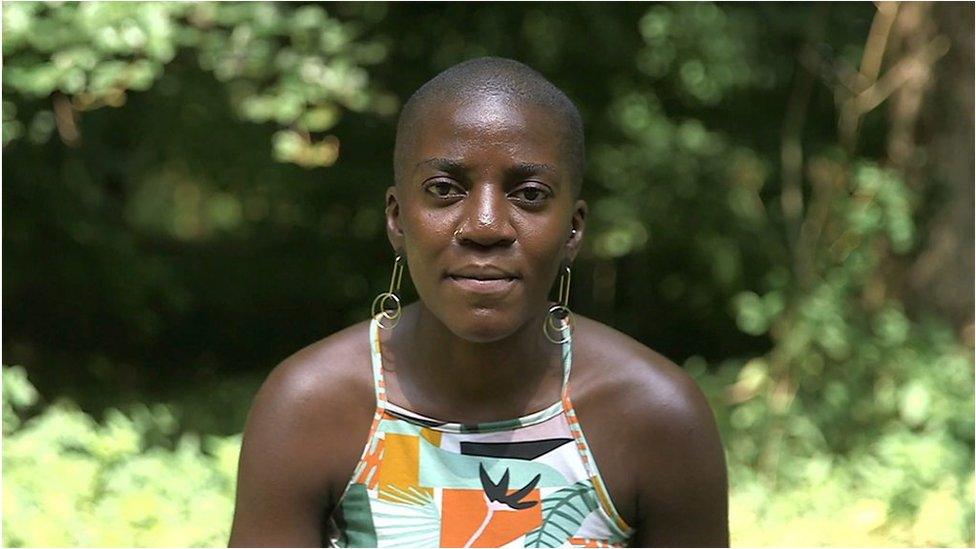Black Lives Matter: My year as an accidental anti-racism activist
- Published
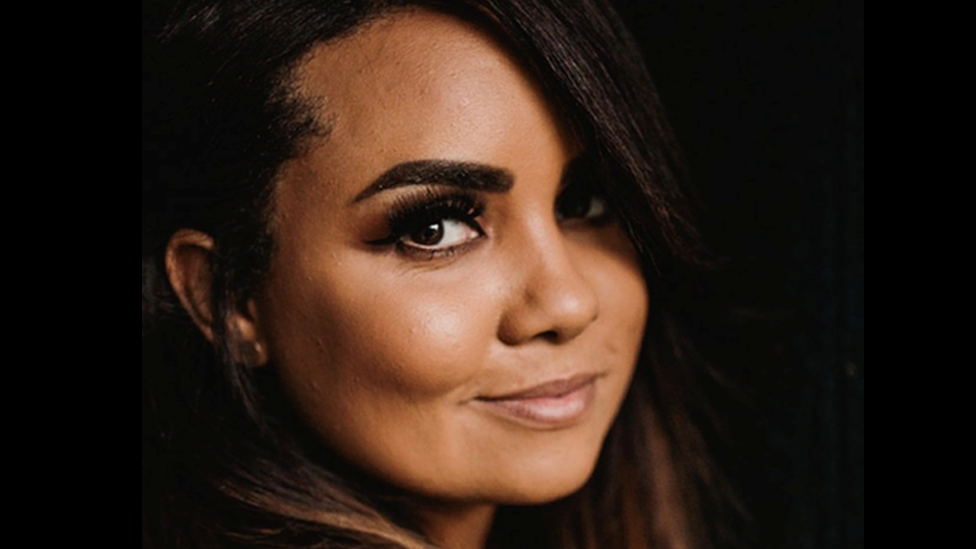
At the beginning of 2020, photographer Tash Jones was looking forward to wedding bookings
In May, the UK was in lockdown and George Floyd was killed by US police officers, prompting a global outpouring of grief and anger - and an increased sense of urgency around the Black Lives Matter movement. For one black Welsh woman, 2020 changed her life.
At the beginning of the year, photographer Tash Jones had a full diary of weddings to capture, and her own marriage to plan.
Then the Covid-19 pandemic struck, preventing large weddings - and in May George Floyd was killed after being pinned to the ground by a police officer in Minneapolis.
The combination of events led to the mother-of-two from Denbighshire becoming an "accidental activist".
Born to a white, Welsh-speaking mother and a black Jamaican father, Ms Jones was subjected to sustained racist bullying throughout her childhood, once resulting in her hair being set on fire when she was a teenager, and excrement being left on her doorstep.
George Floyd's death and the social media reaction of many of her white friends and acquaintances pushed her into being more vocal about her own experiences and worries for her young children.
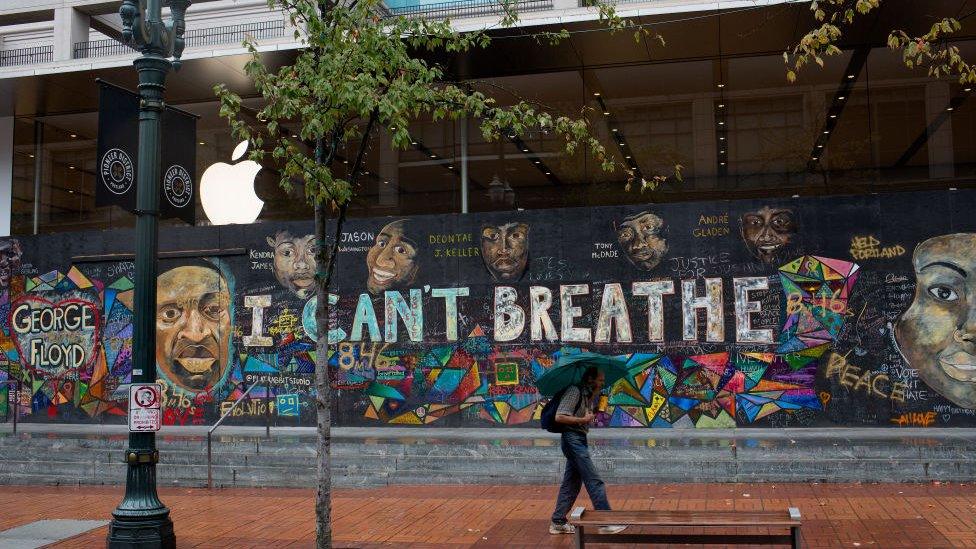
A mural in Oregon commemorates the death of George Floyd, which shocked the world in May
As her wedding jobs were cancelled, she found herself being asked to speak at virtual industry conferences, including one held by Looks Like Film, a large international photography platform.
"I was kind of thrust into speaking really. It wasn't really in my to-do list," she said.
She was also motivated by "how I felt about my children, not being represented, and having the same struggles that I had growing up in north Wales".
"That left me feeling really queasy because I know how hard it was and I don't want that for them. You always want better for your children."
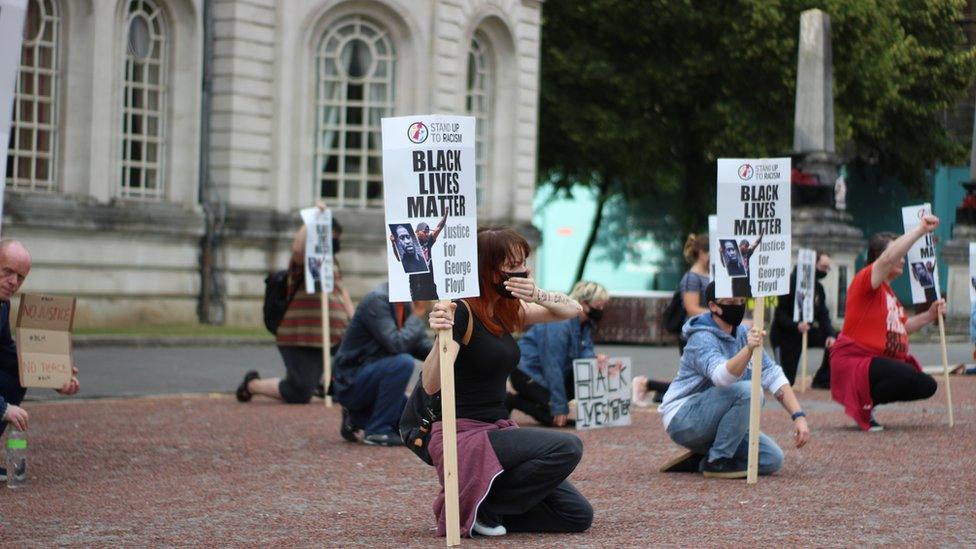
Protesters took the knee outside Cardiff's City Hall as part of the Black Lives Matters movement
"I think because of lockdown, and everybody having their jobs or their hobbies and their social circles taken away, [Black Lives Matter 2020] obviously got more attention because people were forced to watch it and couldn't look away.
"I was getting a lot of messages from clients, from old friends, from acquaintances and people I don't even know, asking me what they can do to be better, or what they can do to be anti-racist.
"And that was a massive pressure for me, and it was detrimental to my mental health because I found myself having to almost handhold everybody I know through a situation that was more harmful to me.
"It was hard to read comments from people that I thought were my friends, showing their true colours. That was so sad because I thought I was a good judge of character. Honestly so many people surprised me."
She started a Facebook group "Let's Talk with Tash", where she discussed other issues too, including mental health and plus-size, and also participated in a panel with Dr Rosena Allin-Khan MP on mental health among wedding industry professionals during the pandemic.
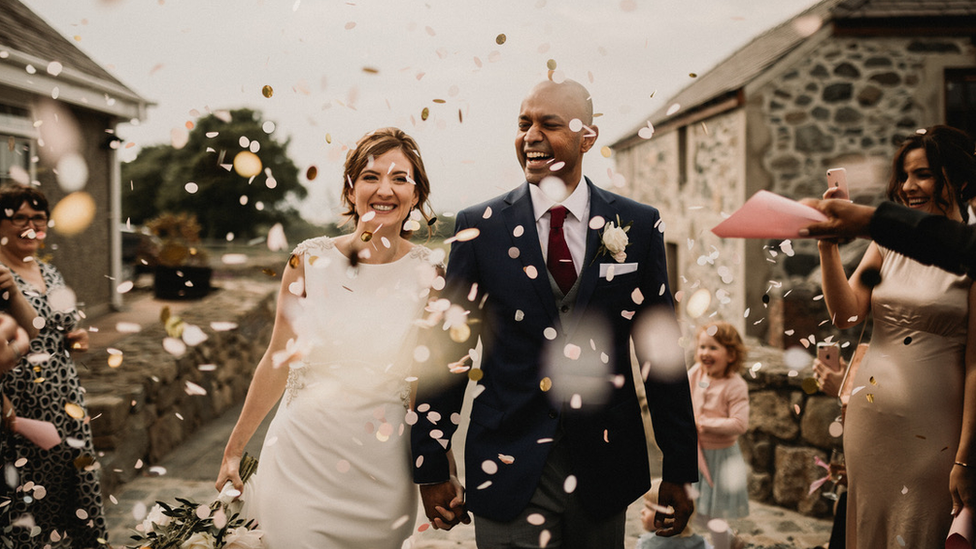
Tash Jones' work won her a place on the Professional Photo magazine's top 50 UK photographers list
A high point of the year was to be named as one of Professional Photo magazine's top 50 UK photographers.
Partly to set an example to her children, she sent the story to a local paper.
Based on the experience of others, including black female MPs, she anticipated there could be a mix-up of her photos. She sent separate emails containing her own photo, and portraits of other black people.
But instead of picturing her, they mistakenly put her name against an image of one of her black clients, something she said seemed to happen much more to people of colour.
For someone who had fought to be recognised, and endured lifelong racism, the mistake triggered painful memories.
"I was crying my eyes out. It was just a shock... It reaffirmed all those childhood thoughts that I had that I'll never be good enough, that I'll never be [recognised or] important. I can't tell you how massively that impacted me."
She said the mistake also upset other black people - the American client whose photograph was mistakenly labelled, the UK black female photographers network, and her young son, who said "we don't all look the same".
She said positive representation was so important because, during her childhood, cultural depictions of black people were overwhelmingly negative.
"In films, I would see [black] people who were on drugs or not very good in school and saved by somebody white, or on crack or leaving their kids, or the dads abandon them... I actually thought I didn't have a chance of doing anything."
She said the reporter who made the mistake was "mortified", and the paper issued a correction and apologised for any distress caused.
But the incident underlined her view that much more needs to be done by organisations to improve diversity and deliver sustainable change.
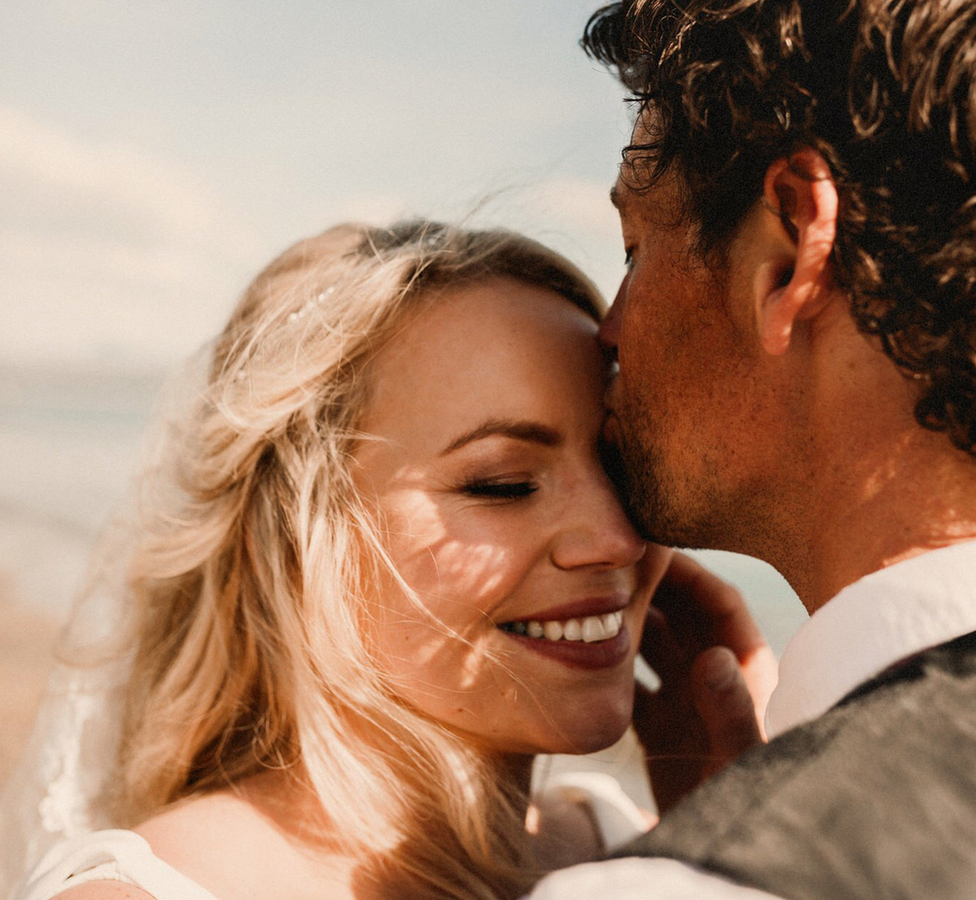
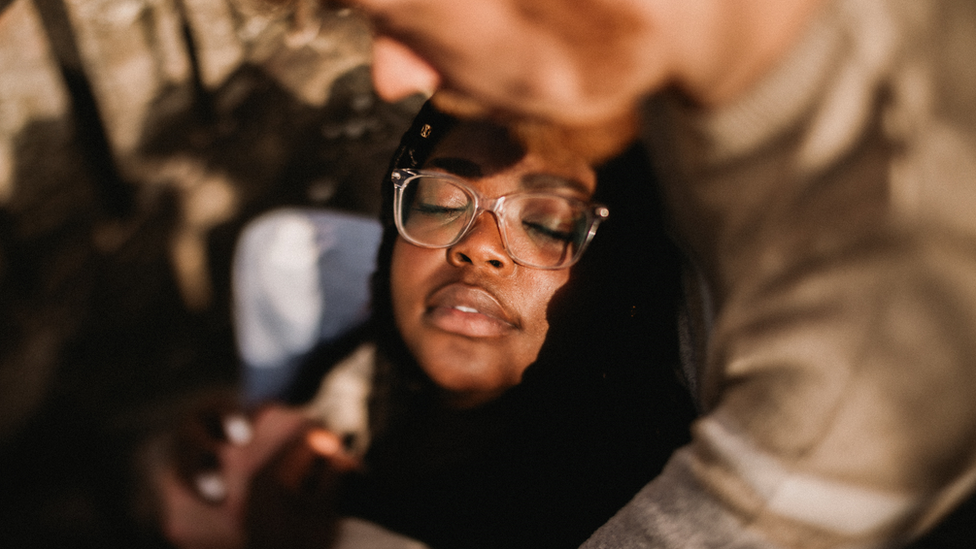
"Couples in love" like these photos is the focus of much of her photography work
This applies as much to the wedding industry as any sector, she said.
As Black Lives Matters protests spread in the summer, big wedding blogs switched from featuring predominantly white people to black brides and grooms.
"All of those images that they all posted simultaneously for weeks and weeks and months and months - that content was available to them prior to George Floyd being murdered.
"Why weren't you posting it then? Why is it taking a worldwide tragic event in uproar for you to be posting diversity?
"That doesn't sit right with me... So people felt the need to perform, when really they should have been addressing why it wasn't like that in the first place."
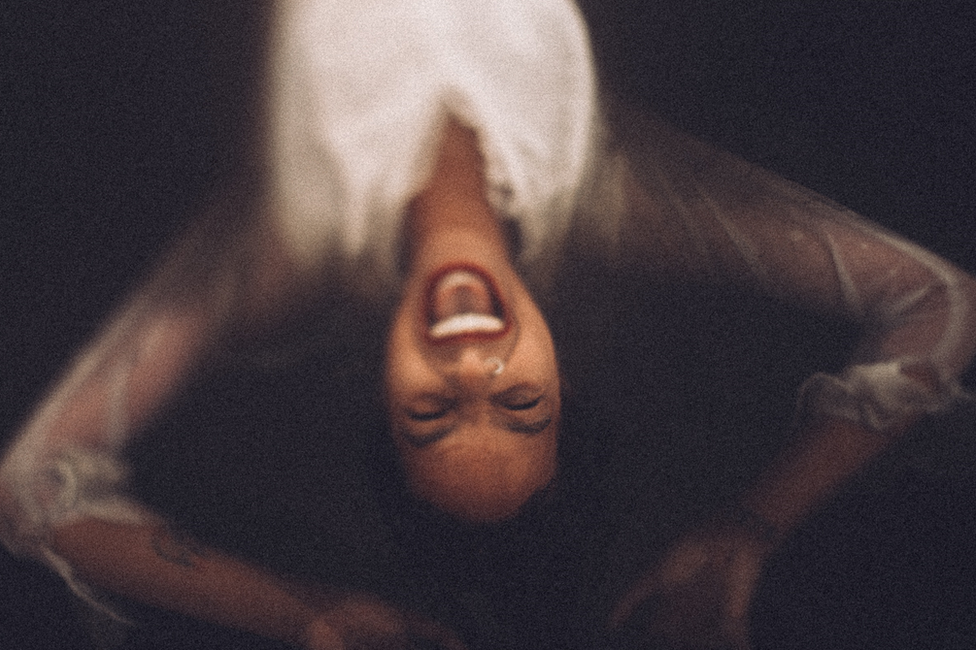
One of Tash Jones' "Dŵr Du" series, which was part of an exhibition of black female photography
Going into 2021, she wants to capture more pictures of "love and life" again and diversify her portfolio, as she did earlier in the year when her series of images Dŵr Du (black water in English) was selected for the We Are Here exhibition, which showcased black female photography.
"Most of all I wish to have a relatively stress-free year... and see a real change in systemic racism and those in power taking this to heart.
"Change is long overdue and I hope that people don't forget what needs to be done."
- Published11 July 2020
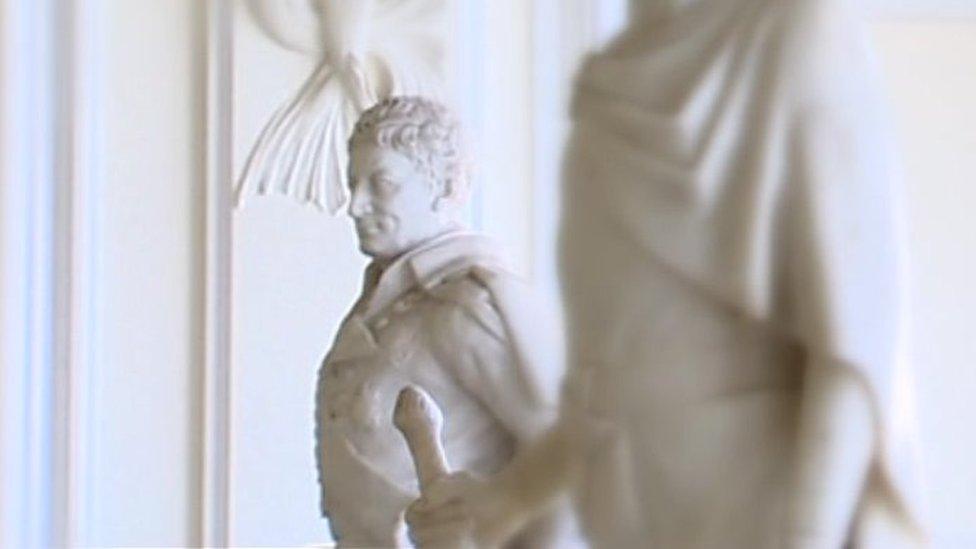
- Published3 July 2020
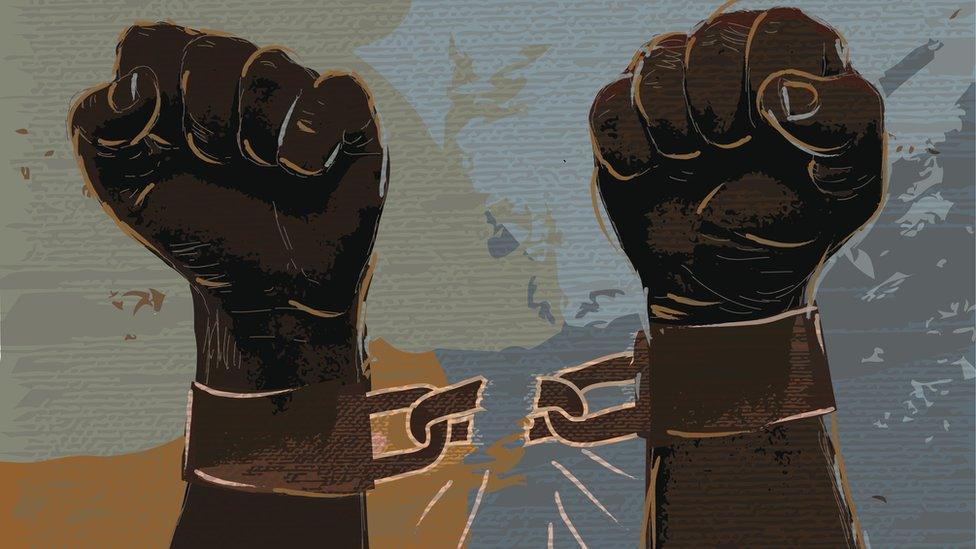
- Published19 August 2020
